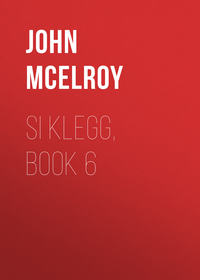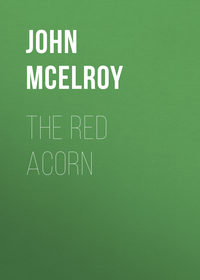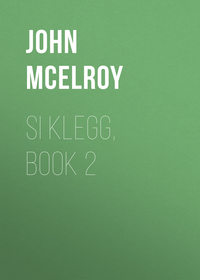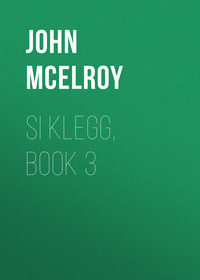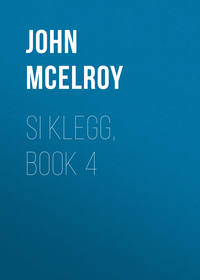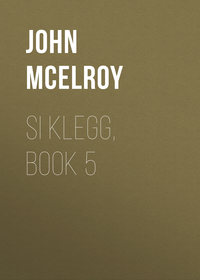
Полная версия
Andersonville - Volume 2 A Story of Rebel Military Prisons


Titel: Andersonville — Volume 2 / A Story of Rebel Military Prisons
von Oliver Goldsmith, Samuel Pepys, William Dean Howells, John Burroughs, William Harmon Norton, L. Mühlbach, Franklin Knight Lane, Walter Pater, Jonathan Swift, Augusta J. Evans, Trumbull White, Kathleen Thompson Norris, Matthew Arnold, Charles W. Colby, Shakespeare, James Fenimore Cooper, D. H. Lawrence, James Joyce, Ada Cambridge, Philip E. Muskett, Catherine Helen Spence, Rolf Boldrewood, Ernest Scott, Fergus Hume, H. G. Wells, Victor [pseud.] Appleton, Roald Amundsen, Max Simon Nordau, Henry David Thoreau, E. Phillips Oppenheim, Richard Wagner, Franz Liszt, Charlotte Mary Yonge, Charles Henry Eden, Charles Babbage, T. R. Malthus, Unknown, Joseph Ernest Morris, Robert Southey, Isabella L. Bird, Charles James Fox, Thomas Hariot, Cyrus Thomas, Bart Haley, Christopher Morley, Edgar Saltus, Marie Corelli, Edmund Lester Pearson, Robert Browning, John Aubrey, Benjamin Nathaniel Bogue, John McElroy
ISBN 978-3-7429-4116-9
Alle Rechte vorbehalten.
Es ist ohne vorherige schriftliche Erlaubnis nicht gestattet, dieses Werk im Ganzen oder in Teilen zu vervielfältigen oder zu veröffentlichen.
ANDERSONVILLE, By John McElroy, v2
ANDERSONVILLE
A STORY OF REBEL MILITARY PRISONS
FIFTEEN MONTHS A GUEST OF THE SO-CALLED
SOUTHERN CONFEDERACY
A PRIVATE SOLDIERS EXPERIENCE
IN
RICHMOND, ANDERSONVILLE, SAVANNAH, MILLEN
BLACKSHEAR AND FLORENCE
BY JOHN McELROY
Late of Co. L. 16th Ill Cav.
1879
Volume 2.
../Images/cover.jpg (204K)
TO THE HONORABLE
NOAH H. SWAYNE.
JUSTICE OF THE SUPREME COURT OF THE UNITED STATES,
A JURIST OF DISTINGUISHED TALENTS AND EXALTED CHARACTER;
ONE OF THE LAST OF THAT
ADMIRABLE ARRAY OF PURE PATRIOTS AND SAGACIOUS COUNSELORS,
WHO, IN
THE YEARS OF THE NATION'S TRIAL,
FAITHFULLY SURROUNDED THE GREAT PRESIDENT,
AND, WITH HIM, BORE THE BURDEN
OF
THOSE MOMENTOUS DAYS;
AND WHOSE WISDOM AND FAIRNESS HAVE DONE SO MUCH SINCE
TO
CONSERVE WHAT WAS THEN WON,
THIS BOOK IS DEDICATED WITH RESPECT AND APPRECIATION,
BY THE AUTHOR.
p000.jpg (129K)
Full Size
CONTENTS:
CHAPTER XXI.
DIMINISHING RATIONS--A DEADLY COLD RAIN--HOVERING OVER PITCH PINE FIRES --INCREASE ON MORTALITY--A THEORY OF HEALTH.
CHAPTER XXII.
DIFFERENCE BETWEEN ALABAMIANS AND GEORGIANS--DEATH OF "POLL PARROTT" --A GOOD JOKE UPON THE GUARD--A BRUTAL RASCAL.
CHAPTER XXIII.
A NEW LOT OF PRISONERS--THE BATTLE OF OOLUSTEE--MEN SACRIFICED TO A GENERAL'S INCOMPETENCY--A HOODLUM REINFORCEMENT--A QUEER CROWD --MISTREATMENT OF AN OFFICER OF A COLORED REGIMENT--KILLING THE SERGEANT OF A NEGRO SQUAD.
CHAPTER XXIV.
APRIL--LONGING TO GET OUT--THE DEATH RATE--THE PLAGUE OF LICE --THE SO-CALLED HOSPITAL.
CHAPTER XXV.
THE "PLYMOUTH PILGRIMS"--SAD TRANSITION FROM COMFORTABLE BARRACKS TO ANDERSONVILLE--A CRAZED PENNSYLVANIAN--DEVELOPMENT OF THE BUTLER BUSINESS.
CHAPTER XXVI.
LONGINGS FOR GOD'S COUNTRY--CONSIDERATIONS OF THE METHODS OF GETTING THERE--EXCHANGE AND ESCAPE--DIGGING TUNNELS, AND THE DIFFICULTIES CONNECTED THEREWITH--PUNISHMENT OF A TRAITOR.
CHAPTER XXVII.
THE HOUNDS, AND THE DIFFICULTIES THEY PUT IN THE WAY OF ESCAPE --THE WHOLE SOUTH PATROLLED BY THEM.
CHAPTER XXVIII.
MAY--INFLUX OF NEW PRISONERS--DISPARITY IN NUMBERS BETWEEN THE EASTERN AND WESTERN ARMIES--TERRIBLE CROWDING--SLAUGHTER OF MEN AT THE CREEK.
CHAPTER XXIX.
SOME DISTINCTION BETWEEN SOLDIERLY DUTY AND MURDER--A PLOT TO ESCAPE --IT IS REVEALED AND FRUSTRATED.
CHAPTER XXX.
JUNE--POSSIBILITIES OF A MURDEROUS CANNONADE--WHAT WAS PROPOSED TO BE DONE IN THAT EVENT--A FALSE ALARM--DETERIORATION OF THE RATIONS --FEARFUL INCREASE OF MORTALITY.
CHAPTER XXXI.
DYING BY INCHES--SEITZ, THE SLOW, AND HIS DEATH--STIGGALL AND EMERSON --RAVAGES ON THE SCURVY.
CHAPTER XXXII.
"OLE BOO," AND "OLE SOL, THE HAYMAKER"--A FETID, BURNING DESERT--NOISOME WATER, AND THE EFFECTS OF DRINKING IT--STEALING SOFT SOAP.
CHAPTER XXXIII.
"POUR PASSER LE TEMPS"--A SET OF CHESSMEN PROCURED UNDER DIFFICULTIES --RELIGIOUS SERVICES--THE DEVOTED PRIEST--WAR SONG.
CHAPTER XXXIV.
MAGGOTS, LICE AND RAIDERS--PRACTICES OF THESE HUMAN VERMIN--PLUNDERING THE SICK AND DYING--NIGHT ATTACKS, AND BATTLES BY DAY--HARD TIMES FOR THE SMALL TRADERS.
CHAPTER XXXV.
A COMMUNITY WITHOUT GOVERNMENT--FORMATION OF THE REGULATORS--RAIDERS ATTACK KEY BUT ARE BLUFFED OFF--ASSAULT OF THE REGULATORS ON THE RAIDERS --DESPERATE BATTLE--OVERTHROW OF THE RAIDERS.
CHAPTER XXXVI.
WHY THE REGULATORS WERE NOT ASSISTED BY THE ENTIRE CAMP--PECULIARITIES OF BOYS FROM DIFFERENT SECTIONS--HUNTING THE RAIDERS DOWN--EXPLOITS OF MY LEFT-HANDED LIEUTENANT--RUNNING THE GAUNTLET.
CHAPTER XXXVII.
THE EXECUTION--BUILDING THE SCAFFOLD--DOUBTS OF THE CAMP-CAPTAIN WIRZ THINKS IT IS PROBABLY A RUSE TO FORCE THE STOCKADE--HIS PREPARATIONS AGAINST SUCH AN ATTEMPT--ENTRANCE OF THE DOOMED ONES--THEY REALIZE THEIR FATE--ONE MAKES A DESPERATE ATTEMPT TO ESCAPE--HIS RECAPTURE--INTENSE EXCITEMENT--WIRZ ORDERS THE GUNS TO OPEN--FORTUNATELY THEY DO NOT--THE SIX ARE HANGED--ONE BREAKS HIS ROPE--SCENE WHEN THE RAIDERS ARE CUT DOWN.
CHAPTER XXXVIII.
AFTER THE EXECUTION--FORMATION OF A POLICE FORCE--ITS FIRST CHIEF --"SPANKING" AN OFFENDER.
CHAPTER XXXIX.
JULY--THE PRISON BECOMES MORE CROWDED, THE WEATHER HOTTER, NATIONS POORER, AND MORTALITY GREATER--SOME OF THE PHENOMENA OF SUFFERING AND DEATH.
CHAPTER XL.
THE BATTLE OF THE 22D OF JULY--THE ARMS OF THE TENNESSEE ASSAULTED FRONT AND REAR--DEATH OF GENERAL MCPHERSON--ASSUMPTION OF COMMAND BY GENERAL LOGAN--RESULT OF THE BATTLE.
LIST OF ILLUSTRATIONS
(The Skipped Numbers were drawings unsuitable for copying.)
36. Killing Lice by Singeing 37. Stripping the Dead for Clothes 38. A Plymouth Pilgrim 39. The Crazy Pennsylvanian 40. Midnight Attack of the Raiders 41. Ignominious End of a Tunnel Enterprize 42. Tunneling 43. Tattooing the Tunnel Traitor 44. Overpowering a Guard 45. A Master of the Hounds 46. Hounds Tearing a Prisoner 47. Shot at the Creek by the Guard 48. Cooking Mush 49. Seitz on Horseback 50. Finding Seitz Dead 51. A Case of Scurvy 52. Confiscating Soft Soap 63. Religious Services 54. The Priest Anointing the Dying 55. Raider Fight with one of Ellett's Marine Brigade 56. Key Bluffing His Would-be Assassins 67. Rebel Artillerists Training the Cannon on the Prison 58. Overthrow of the Raiders 59. Arrest of Pete Donnelly 60. Death of the Sailor 61. Execution of the Raiders 63. Sergeant A. R, Hill, 100th O. V. I. 63. "Spanking" a Thief 64. The Wounded Illinois Sergeant 65. The Idiotic Flute-Player 66. One of Sherman's "Veterans" 67. "You Hear Me" 68. Logan Taking Command of the Army of the Tennessee 69. Death of M'Pherson 70. The Work of a Shell 71. The Fight for the Flag 72. In the Rifle-pit After the Battle 73. Taken In
CHAPTER XXI.
DIMINISHING RATIONS--A DEADLY COLD RAIN--HOVERING OVER PITCH PINE FIRES --INCREASE ON MORTALITY--A THEORY OF HEALTH.
The rations diminished perceptibly day by day. When we first entered we each received something over a quart of tolerably good meal, a sweet potato, a piece of meat about the size of one's two fingers, and occasionally a spoonful of salt. First the salt disappeared. Then the sweet potato took unto itself wings and flew away, never to return. An attempt was ostensibly made to issue us cow-peas instead, and the first issue was only a quart to a detachment of two hundred and seventy men. This has two-thirds of a pint to each squad of ninety, and made but a few spoonfuls for each of the four messes in the squad. When it came to dividing among the men, the beans had to be counted. Nobody received enough to pay for cooking, and we were at a loss what to do until somebody suggested that we play poker for them. This met general acceptance, and after that, as long as beans were drawn, a large portion of the day was spent in absorbing games of "bluff" and "draw," at a bean "ante," and no "limit."
After a number of hours' diligent playing, some lucky or skillful player would be in possession of all the beans in a mess, a squad, and sometimes a detachment, and have enough for a good meal.
Next the meal began to diminish in quantity and deteriorate in quality. It became so exceedingly coarse that the common remark was that the next step would be to bring us the corn in the shock, and feed it to us like stock. Then meat followed suit with the rest. The rations decreased in size, and the number of days that we did not get any, kept constantly increasing in proportion to the days that we did, until eventually the meat bade us a final adieu, and joined the sweet potato in that undiscovered country from whose bourne no ration ever returned.
The fuel and building material in the stockade were speedily exhausted. The later comers had nothing whatever to build shelter with.
But, after the Spring rains had fairly set in, it seemed that we had not tasted misery until then. About the middle of March the windows of heaven opened, and it began a rain like that of the time of Noah. It was tropical in quantity and persistency, and arctic in temperature. For dreary hours that lengthened into weary days and nights, and these again into never-ending weeks, the driving, drenching flood poured down upon the sodden earth, searching the very marrow of the five thousand hapless men against whose chilled frames it beat with pitiless monotony, and soaked the sand bank upon which we lay until it was like a sponge filled with ice-water. It seems to me now that it must have been two or three weeks that the sun was wholly hidden behind the dripping clouds, not shining out once in all that time. The intervals when it did not rain were rare and short. An hour's respite would be followed by a day of steady, regular pelting of the great rain drops.
I find that the report of the Smithsonian Institute gives the average annual rainfall in the section around Andersonville, at fifty-six inches --nearly five feet--while that of foggy England is only thirty-two. Our experience would lead me to think that we got the five feet all at once.
We first comers, who had huts, were measurably better off than the later arrivals. It was much drier in our leaf-thatched tents, and we were spared much of the annoyance that comes from the steady dash of rain against the body for hours.
The condition of those who had no tents was truly pitiable.
They sat or lay on the hill-side the live-long day and night, and took the washing flow with such gloomy composure as they could muster.
All soldiers will agree with me that there is no campaigning hardship comparable to a cold rain. One can brace up against the extremes of heat and cold, and mitigate their inclemency in various ways. But there is no escaping a long-continued, chilling rain. It seems to penetrate to the heart, and leach away the very vital force.
The only relief attainable was found in huddling over little fires kept alive by small groups with their slender stocks of wood. As this wood was all pitch-pine, that burned with a very sooty flame, the effect upon the appearance of the hoverers was, startling. Face, neck and hands became covered with mixture of lampblack and turpentine, forming a coating as thick as heavy brown paper, and absolutely irremovable by water alone. The hair also became of midnight blackness, and gummed up into elflocks of fantastic shape and effect. Any one of us could have gone on the negro minstrel stage, without changing a hair, and put to blush the most elaborate make-up of the grotesque burnt-cork artists.
No wood was issued to us. The only way of getting it was to stand around the gate for hours until a guard off duty could be coaxed or hired to accompany a small party to the woods, to bring back a load of such knots and limbs as could be picked up. Our chief persuaders to the guards to do us this favor were rings, pencils, knives, combs, and such trifles as we might have in our pockets, and, more especially, the brass buttons on our uniforms. Rebel soldiers, like Indians, negros and other imperfectly civilized people, were passionately fond of bright and gaudy things. A handful of brass buttons would catch every one of them as swiftly and as surely as a piece of red flannel will a gudgeon. Our regular fee for an escort for three of us to the woods was six over-coat or dress-coat buttons, or ten or twelve jacket buttons. All in the mess contributed to this fund, and the fuel obtained was carefully guarded and husbanded.
This manner of conducting the wood business is a fair sample of the management, or rather the lack of it, of every other detail of prison administration. All the hardships we suffered from lack of fuel and shelter could have been prevented without the slightest expense or trouble to the Confederacy. Two hundred men allowed to go out on parole, and supplied with ages, would have brought in from the adjacent woods, in a week's time, enough material to make everybody comfortable tents, and to supply all the fuel needed.
The mortality caused by the storm was, of course, very great. The official report says the total number in the prison in March was four thousand six hundred and three, of whom two hundred and eighty-three died.
Among the first to die was the one whom we expected to live longest. He was by much the largest man in prison, and was called, because of this, "BIG JOE." He was a Sergeant in the Fifth Pennsylvania Cavalry, and seemed the picture of health. One morning the news ran through the prison that "Big Joe is dead," and a visit to his squad showed his stiff, lifeless form, occupying as much ground as Goliath's, after his encounter with David.
His early demise was an example of a general law, the workings of which few in the army failed to notice. It was always the large and strong who first succumbed to hardship. The stalwart, huge-limbed, toil-inured men sank down earliest on the march, yielded soonest to malarial influences, and fell first under the combined effects of home-sickness, exposure and the privations of army life. The slender, withy boys, as supple and weak as cats, had apparently the nine lives of those animals. There were few exceptions to this rule in the army--there were none in Andersonville. I can recall few or no instances where a large, strong, "hearty" man lived through a few months of imprisonment. The survivors were invariably youths, at the verge of manhood,--slender, quick, active, medium-statured fellows, of a cheerful temperament, in whom one would have expected comparatively little powers of endurance.
The theory which I constructed for my own private use in accounting for this phenomenon I offer with proper diffidence to others who may be in search of a hypothesis to explain facts that they have observed. It is this:
a. The circulation of the blood maintains health, and consequently life by carrying away from the various parts of the body the particles of worn-out and poisonous tissue, and replacing them with fresh, structure-building material.


